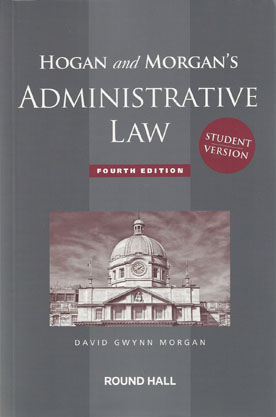Administrative Law in Ireland 4th Ed.
ISBN: LC9781858006871
€125.00
Available on backorder
Quick Overview
By David Gwynn Morgan
Due to popular demand, this new, student version of the 4th edition of Administrative Law in Ireland has been streamlined and tailored to meet the requirements of students by David Gwynn Morgan. It has also been updated to include any significant changes that have arisen in the two years since the practitioner version was published in 2010. The student version is a clear and comprehensive explanation and analysis of Irish administrative law. It is an invaluable resource for students and practitioners alike.
Key benefits of the student version:* Sharper focus on ideas, principles and examinable topics, which have been clearly set out to assist the student coming to the subject for the first time* Accessible coverage of the concepts that are at the heart of administrative law such as:the rule of Law, that is, governance being conducted in an open, consistent and accessible way Judicial review of administrative action, including reasonableness, ultra vires, as compared with rights-based control, and the centrality of fair procedure in governmental administration* Institutions of government including the civil service, local authorities, the Ombudsman, An Bord Plean la, tribunals of inquiry and commissions of investigation* Thoroughly updated since the practitioner version now includes: post-Meadows case law; reconfiguration of departments following the 2011 Election; changes to the application for judicial review (2011)Includes coverage of challenging areas such as:* The various sources of law, including regulations, as well as so-called soft law such as codes, circulars and guidelines* The structure of a government department; the balance of authority and accountability as between minister and civil servants; selection and removal of civil servants* Local government and planning* Licensing and regulation* The independence of tribunals and other public bodies* The Ombudsman* Commissions of investigation* Rules regulating the delegation of statutory authority* Fair procedure, including constitutional justice and article 6.1 of the ECHR* The duty to give reasons, under both the Constitution and the Freedom of Information Acts 1997 2003* Control of discretionary power from Wednesbury to Meadows, with likely future developments* Practical consequences of an invalid administrative action* Damages for torts of public bodies* The notion of public law as a separate jurisdiction



